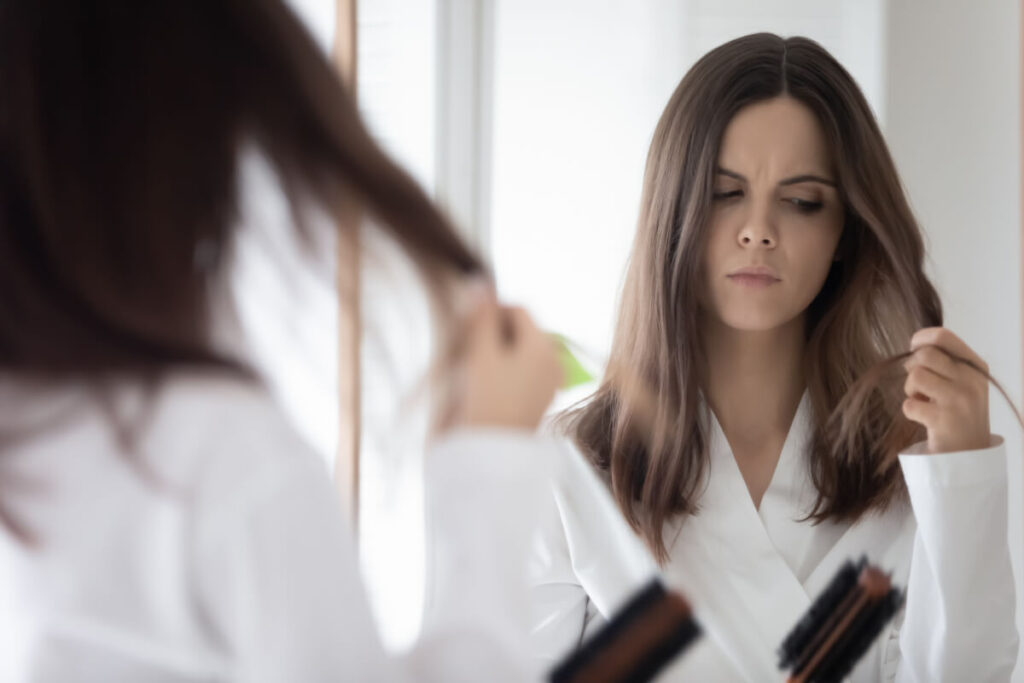The rate of hair growth tends to vary per person; on average, hair grows around 15 cm or about 6 inches per year. If you’re finding it difficult to keep your hair growing, there are a number of factors that can cause it. One of which could be an iron deficiency, which has been linked with hair loss. Since one of the most common treatments for nutritional deficiencies is supplement intake, an iron supplement might just help you.
So can hair grow faster with iron supplements? While studies have yet to find conclusive evidence on it, it doesn’t mean that iron supplements can’t still positively affect hair growth. Iron plays an important role not only in how your hair grows but how strong it becomes, allowing for more hair to appear on your head.
What Does Iron Do For The Hair?
Hair health relies on a variety of nutrients, natural minerals, and vitamins to grow to become strong and healthy. Your iron levels, among other nutrients, matter in healthy hair growth. Iron plays a key role not only in helping the body perform it’s appropriate bodily functions, but also in hair growth and strengthening.
Hair Growth
There are three phases of healthy hair growth. First is the anagen phase, where most of the growth happens. Then there is the catagen phase, where growing slows down and the hair turns into club hairs. Finally it is the telogen phase, where the hair follicle falls out to make way for the cycle to restart.
One of its important roles of iron is being part of the protein hemoglobin. This red blood cell is responsible for transporting oxygen to different parts of the body, including the hair root. This is why iron is an important part in the hair cycle.
Hair Strengthening
Within the hair structure are multiple minerals, such as zinc, copper, and even iron. Hair strands rely on sufficient nutrition of those minerals in order to become stronger. This is why one of the symptoms of iron deficiency is often brittle hair.
While iron has an effect on the hair follicle, vitamin A affects the scalp itself. It encourages the sebaceous glands in the scalp to produce an oil called sebum. This sebum oil is moisturizing for the scalp, and creates the prime environment for strong and luscious hair to grow in.
Causes For Hair Loss

In one of the many peer-reviewed studies about hair loss, a study has found a link between iron deficiency and hair loss; although, the degree of hair loss was undefined. Another study has linked iron deficiencies to a form of hair loss affecting women, called female pattern hair loss, or FPHL. Women tend to have higher risks of iron deficiency as well because of the loss of blood during menstruation.
If you feel like you’ve recently been getting exhausted faster, a possible cause of that is that you’re experiencing a lack of iron in your body; if you’re unsure, undertaking blood tests may help.
Nutrition. Since hair relies on nutrients more than just iron, nutritional deficiencies tend to be a common cause for hair loss. Iron alone can’t do the job of growing healthier hair. One may consume sufficient amounts of vitamin C which encourages iron absorption within your body.
Another is biotin, which plays a key role in hair growth. It produces proteins that are needed not just by your hair but your nails too.
Iron deficiency anemia, a medical condition caused by a lack of iron intake, has hair loss as one of its potential symptoms.
When someone is experiencing an iron deficiency, or the iron stores in their body have become depleted, they tend to feel much weaker and exhausted. Other symptoms may include feeling dizzy, becoming more sensitive to colder temperatures, and even shortness of breath while doing simple and basic tasks.
Nutrient deficiencies tend to not lead to permanent hair loss, however. Once the appropriate amount of vitamins are consumed again, hair should begin to regrow. If you are unable to adjust your diet to include more iron-rich foods, an iron supplement may be a possible alternative for you.
Genetics. The rate at which your body grows and produces hair is going to different people, and also depending on your surroundings. A large part of the way that your body grows hair comes from your genetics. Without taking any iron supplements, a quick way to understand how fast your hair grows is to look at your relatives.
Your genetics unfortunately can’t be changed. This is why people tend to have a natural limit to both how much and how fast someone’s hair grows. It’s why some men can grow facial hair and some can’t.
Medical Condition. Your medical condition, for instance, impacts your hair growth. Having a thyroid disorder or thyroid disease which disrupts your thyroid hormone has been found to have a link to hair loss. Another potential hindrance for hair growth is an autoimmune disease. For this reason, a nutritional supplement may have its effectiveness limited until the underlying medical condition is treated first.
When Will Effects Be Visible After Taking Supplements?

Before you decide on taking any dietary supplements or a supplement on hair loss, it’s always going to be recommended to consult with your doctor first. They may perform a physical exam on you, which will let you know which nutrient your body may be lacking in.
When the effects of a supplement will be visible will depend on your age, genetics, and even gender. While there’s a recommendation of 18 mg of iron each day for women and 8 mg a day for men, it would still depend on what your doctor may suggest for you.
It’s important to keep in mind that supplements are just that — supplements. There will be outside factors that may limit the effectiveness of supplements.
Other Ways to Prevent for Hair Loss
Hair loss treatments are going to depend on the cause of hair loss. If people with hair loss are experiencing what is called hereditary hair loss, or their hair loss is inherited, there has yet to be a conclusive treatment for that; you may only aim to slow it down.
While the speed of hair growth may be set for someone, there are multiple practices that someone can incorporate into their life that ensures that nothing gets in the way of it; such practices may not only affect the speed of hair growth but the overall health of your body as well.
Well-Balanced Diet. Since nutritional deficiencies tend to be a cause for hair loss, having a balanced diet can help boost hair growth. An at-home treatment of iron deficiency, for example, could be to consume more iron-rich foods such as red meats, lentils, spinach, leafy greens and other green vegetables. To help in the absorption of dietary iron, you may also consider consuming more vitamin C. Foods rich in vitamin C are citrus fruits and potatoes.
Stress Management. Too much stress can lead to a medical condition called telogen effluvium, which is when hair follicles jump straight to the final hair growth phase, causing diffuse hair loss, which results in a greater loss of hair on the scalp.
Since supplements can take too long to take effect, there are always hair treatments. But hair transplants tend to not only be too visible for others to see after the procedure, they can be painful and costly as well.
An alternative to both taking the usual supplements and going under the knife for a hair procedure is PEP Factor from FACE Medical Supply.
Benefits of PEP Factor Hair Growth Supplement
Having a medical treatment for hair loss tends to be costly and painful, which is why FACE Med Supply has created an alternative: PEPFactor.
One of the things that hair needs to grow strong is collagen. One of the ways that you can boost collagen production is by using fibroblasts. PEPfactor stimulates the fibroblasts in the scalp, encouraging the growth of stronger hair, faster. PEP Factor may also be used alongside other therapies to further promote hair growth in the body. It would be advisable to consult with your dermatologist prior to this, however.
PEPFactor is an innovative skin and scalp treatment developed by licensed doctors and scientists at UMR. Among their other projects is tackling skin cancers; they’re in the process of researching and developing an effective topical skin cream that can be an alternative treatment for skin cancers.
Try The Best Hair Growth Supplements at FACE Med Store
At FACE Med Store, we provide you with trusted medical products that are not only high-quality but affordable as well. These products range from hair loss treatments to improving the quality of your skin. Our products, like PEPFactor, have been tried and tested by professionals. Click here to visit our store.






